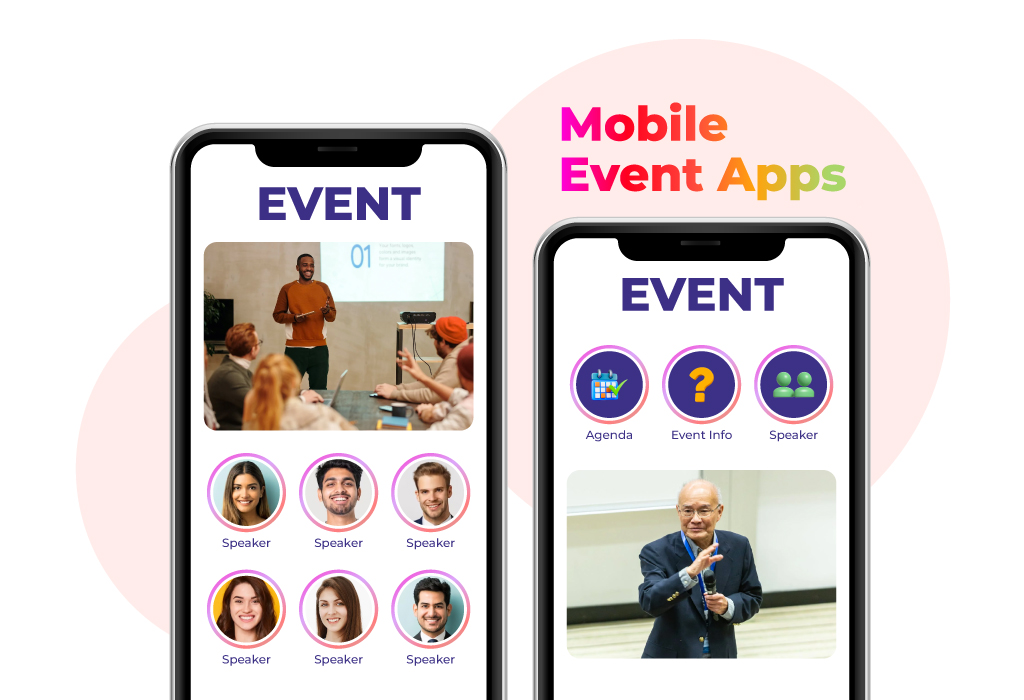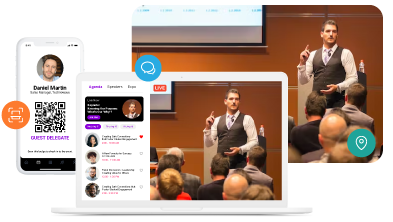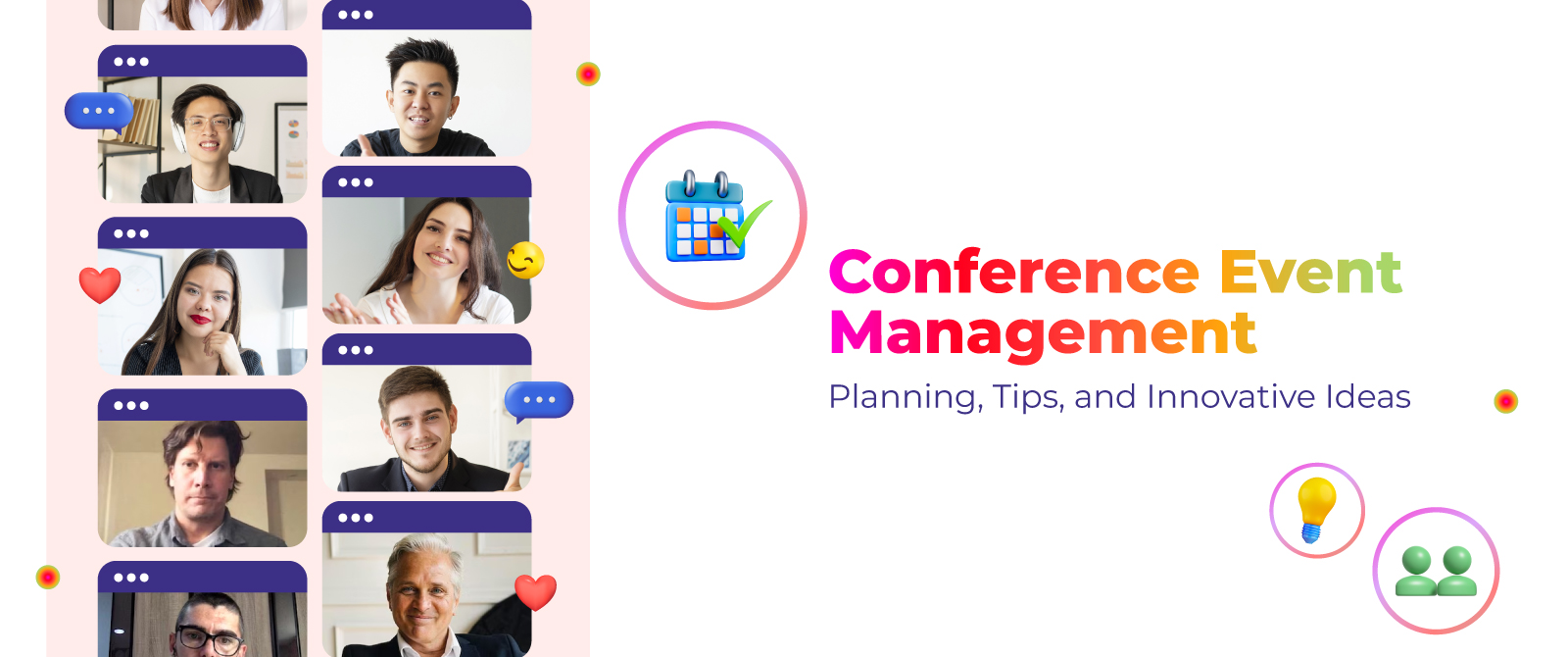The Conference event management can be a daunting task that requires attention to detail and effective organizational skills. From finding the right venue to coordinating speakers and attendees, there are numerous factors to consider to ensure a successful event.
In this blog post, we will give you the best tips for successful conference management, from a basic introduction to the features you should consider in an ideal conference management platform.
We will also cover conference planning and event management. Whether you are an experienced event planner or a first-time organizer, these tips will help you streamline your conference management process and deliver an exceptional event experience.
Table of Contents
What is a Conference?
The purpose of a conference is to bring together a group of individuals to deliberate on a particular topic, which may be academic, commercial, or political. There is usually a fee for the conference. It is usually closed to the general public and attended by industry professionals and keynote speakers, including celebrities. The primary objective of the conference is to provide information, educate, and raise awareness of the subject matter.

Conference Formats
There are different formats a conference can take, all aimed to serve different goals, audiences and sectors. Below are some of the most common format options for conferences:
In-Person Conferences: These are traditional conferences where attendees gather at a physical location. They offer face-to-face networking opportunities, live presentations, and hands-on workshops.
Virtual Conferences: Due to the boom in digital technology, virtual conferences have gained a lot of popularity.
Hybrid Conferences: Hybrid conferences combine the best of both worlds by offering both in-person and virtual attendance options.
Panel Discussions: These conferences put experts in the hot seat, panel-style, as industry leaders discuss a range of topics.
Workshops and Seminars: These are smaller, more specialised conferences that focus on hands-on education and skill development.
Trade Shows and Expos: These are conferences that focus on exhibitions with companies displaying their products.
Types of Conferences
Conferences can be categorized according to their purpose, audience, and industry. Some common types of conferences are:
Career or Academic Conferences: These tend to be research- or education-oriented conferenes, usually sponsored by universities, research institutions or academic societies. The arrival of the new journal is aimed at creating a forum for scholars to publish their research, sharing their knowledge and working on collaborative projects less bad than posthumous collection of their work.
Corporate Conferences: These types of conferences are organized by businesses and are meant for the employees, stakeholders, or clients of the hosting organization. Most of the time, they relate to company news, product launches, or industry trends. Balance Data & People well to drive for a successful end.
Industry Conferences: These conferences focus on specific industries, such as healthcare, technology, or finance. They serve as a breeding ground for professionals to engage in conversations about industry trends, challenges, and opportunities. Industry conferences are great for getting to know potential partners and hearing about the latest news.
Non-Profit Conferences: Social issues, fundraising and advocacy conferences organized by non-profit organizations. This usually involves keynote speeches, panel discussion and workshops intended to heighten awareness and galvanize action.
Workshops: These conferences are usually related to hands on skill development in various fields. These include often also legislation discussion, public service and community development community.
International Conferences: These conferences draw participants from around the globe and address topics with global importance, such as climate change, international trade, or human rights. Well-known as a platform for cross-cultural collaboration and global networking, international conferences are an ideal medium to share knowledge.
Conference Event Management
Conference event management involves coordinating various aspects of an event, such as sourcing vendors, registering attendees, organizing on-site experiences, and collecting post-event feedback. By managing these processes effectively, you can prevent them from becoming a mess.
With a familiar conference management platform, you can streamline tasks, communicate effectively with stakeholders, and ensure a smooth and successful event. In addition, conference management allows you to focus on attendee satisfaction, improving the overall experience, and achieving the desired results.
Need for Conference Management
Planning a conference can be challenging as there are multiple stakeholders, tight schedules and several moving parts involved. Having an effective conference management is very important to make sure that everything goes smoothly and the purpose of the event is achieved. This is why conference management is very important:
Simplifies Planning: To make each element of the event more appealing, from choosing a venue to coordinating a speaker, conference management helps. It ensures timely and cost-effective completion of all tasks.
Improved Attendee Experience: A well-organized conference offers a seamless and enjoyable experience for attendees. Through easy registration and fun content, proper management makes sure that delegates go home with a smile on their faces.
Risk Mitigation: Conferences can be subject to surprises, unforeseen challenges, technical failures, last-minute drop-outs, and logistical issues. Conference management can help you predict and conquer such risks to ensure that the show goes on smoothly.
Budget Optimization: Good conference management allows you to identify cost-saving opportunities and eliminate unnecessary expenses so that you can make the best use of your budget. It helps you to get the best value for your money.
Making decisions based on data: Conference management offers critical insights into attendee behavior, preferences, and feedback. Optimum conclusions and suggestions can be drawn regarding an event using this data in future.
Perception of brand: Properly planned a conference builds up your organization’s reputation and credibility. It shows that you care about quality work and professionalism, which can reflect positively on your brand.
Conference Event Management: Types And Benefits of Implementation
If you are organizing a conference and haven’t chosen a conference event management company, then you must do so as soon as possible. Things might have worked well in the last event, but chances are they could be so much better.
Types of Conference Management
Conference management can be categorized based on the scope and scale of the event. Here are some common types of conference management:
Full-Service Conference Management: This type of management involves handling every aspect of the conference, from planning to execution.
Partial Conference Management: In this approach, the conference management team handles specific aspects of the event, such as registration, logistics, or marketing.
Virtual Conference Management: This type of management focuses on organizing and executing virtual conferences. It includes tasks such as platform selection, technical support, and attendee engagement.
Hybrid Conference Management: Hybrid conference management involves coordinating both in-person and virtual components of the event.
On-Site Conference Management: This type of management focuses on the execution of the conference on the day of the event. It includes tasks such as venue setup, attendee registration, and on-site coordination.
Post-Conference Management: Post-conference management involves tasks such as collecting feedback, analyzing data, and preparing reports.
Let’s discuss the benefits of conference event management:
They Make Event Planning Less Hectic
Planning an event, no matter how small or large, is always going to be challenging and stressful. Planning includes so much to consider, from start to finish, like venue accommodation budget planning, facilities, etc. After a while, you may start thinking that it’s getting a little overwhelming. The reason behind incorporating a conference management platform is that they can sort the tasks at their own level. Also, they leave you with few or no worries.
They Ensure It Runs Seamlessly and Smoothly
No matter how well you plan the event, there are always a few things that are uncertain and can go wrong during the event. It is possible that you’re also not aware of problems that can arise during the event, such as technical issues, and audio and video issues. In that case, conference event management acts as a saviour and assists you with all the problems occurring on board. Therefore, CEM is a must if you want the entire event to be amazing because it ensures seamless and smooth operations.
They Take Charge of Legalities
Conference and event management companies are aware of recent guidelines and all the legal formalities. As a result, while hosting an event, many legalities and guidelines apply. But in general, you can’t keep a record of every guideline, such as basic labour laws, licences, and environmental laws, etc. And chances are that you may miss a few. However, with the conference event management platform, you do not need to worry about such issues. An ideal and professional event company knows all the modern event technology along with every legality. So the benefit of using the conference event platform is that it can take care of all the formalities.
They Have Connection With Potential Users
When you plan an event, you’re likely to book accommodations, but have you ever thought about other things as well? It’s not just about the venue; it also includes food, services like parking, utilities, beverages and many other things. And here comes the part about the conference management platform, as they have the right contacts to solve any problem. This not only ensures high-quality service but is also a very cost-effective way to get everything done.
Apart from the above-mentioned points, there are numerous other benefits or reasons of using conference event management. There’s no doubt that it’s a time and money-saving opportunity for those who are likely to plan an event.
Conference Management Platform: Features to Consider at The Time of Choosing
There are numerous features available in event technology to make your event successful. But, you should know that not every feature can make your event a hit. By leveraging best conference management tools, you can streamline your conference management process, enhance attendee experience, and ensure the success of your event. Whether you are organizing a small workshop or a large international conference, the right tools can make all the difference. Therefore, here are some of the most important components that should be included in your conference event management platform.
Augmented and Virtual Reality
To make your conference more exciting and less boring, use AR and VR in the conference management system. AR /VR. Also, VR creates a unique theme and is also best for implementing some gamification tools for attendees. This will lead to more engagement among the attendees.
Mobile Event Apps
To keep attendees informed of updates, delays, and reminders. A mobile event app can be considered the best because, regardless of the type of event, a personalized app is used to keep attendees informed through push notifications. It also provides networking and lead-generation opportunities. Therefore, it is a crucial factor for the entire event.

Event Cashless Payment System
How about giving your attendees the privilege of paying cashless at events? Use modern event technology, such as RFID wristbands for events or QR codes for check-in. With such cashless payment solutions, attendees don’t have to worry about their belongings or other essentials. With RFID badges and QR codes for check-in, attendees can easily enter the event. After check-in, attendees can make payments directly through their RFID badges. Also, Dreamcast is one of the modern event management companies with such cashless payment solutions.
A Solution For Hybrid and Virtual Conferences
It is important to ensure that the conference event management company you select offers you physical solutions for any type of event, including conferences. Digital add-ons are available even for in-person conferences to accommodate attendees who are unable to attend. The conference event management should provide you with the ability to attend your conference virtually with all the dynamic experience. So, make sure the conference provider offers a solution that allows attendees to participate in a virtual conference.
WhatsApp Automation
According to a Statista survey, in June 2023, WhatsApp had approximately 2.78 and more billion active users across the world. It has become the most popular messaging platform in the world. You must be wondering how the WhatsApp survey relates to this? It is related to event technology, as nowadays, conferences are incomplete without WhatsApp Automation. It assists in engaging the attendees with timely updates about the event directly on their WhatsApp.
Event Registration and Ticketing
No one wants long queues for event tickets, right? In an event like a conference, make sure to set up an event management system that is quick and instant with event registrations and ticketing.
As we know, not all fingers are the same, and in the same way, not all your attendees are the same. Some participants like to pre-register and pre-book whereas, others are latecomers. In that scenario, you need a conference event management platform that assists you with quick event registration, easy badge printing, and eliminating queues and early check-ins without missing any exciting parts.
Conference Event Check-in and Badging
Event badges and on-site event badge printing are completely different things. Pre-event badges are fine, but in the case of in-person conferences, make sure you have management that quickly prints event badges.
Social Media Engagement Solutions
To reach a larger audience at your next event, you need a conference management platform that easily integrates with social media. More sharing with dedicated hashtags can make your event go viral. Also, social media integration helps keep attendees engaged with your event.
Data Analysis
You don’t want to miss out on complete data-driven analysis. A deep understanding of an event helps in making upcoming event decisions. Therefore, a conference event management system should have deep analytics on the event. From ‘session attendance tracking’ to ‘collection of feedback’ data gathering plays a crucial role. CEM helps in analyzing behavioural patterns and the drawbacks of events.

Lead Management
For lead generation at hybrid or virtual conferences, learn about the tools necessary to collect and engage with leads at the event. Since lead management is directly linked to the CRM system, make sure you have all the data you need to measure the overall impact of your conference. Also, don’t forget to track potential leads.
Conference Management Check-list for Effortless Conference Planning
A successful meeting requires careful planning. Similarly, the conference management process requires meticulous planning at every stage. Choosing the right conference management tools can make a significant difference in the success of your event. Here is a quick list of specifications to assist you in making your decision:
Step 1: Find Out the Objectives Behind Your Conference
You must first define what the goal of your conference will be. Are you hoping to increase your income? Increase brand recognition? Introduce a fresh product? Boost membership numbers? Your conference’s final structure will be determined by your ultimate aim; therefore, the first step is to sit down, identify your goals, and have a brainstorming session.
Step 2: Prepare a Budget and Set Goals
Venue rental, catering, audio-visual equipment rental, transportation and accommodation for speakers and attendees, marketing and promotional materials, event staffing, insurance coverage, and any additional activities or entertainment planned are the main expenses in organizing a conference. It is important to carefully consider all possible costs to ensure that the budget accurately reflects the needs of the conference and allows for a successful event. Additionally, exploring sponsorship opportunities can help offset some of these expenses by securing financial support or in-kind contributions from external organizations.

Step 3: Setting Up Conference Operations
This stage involves starting the conference management procedure. Create a team for the preparation and implementation of the conference, assign particular tasks, and create due dates for each task. Make contact with housing and transportation providers and determine the expenses in advance to secure the cheapest rate.
Step 4: Shortlisting of the Speakers
Your conference speakers are a critical component and play an important role in attracting new attendees. Based on your budget, select the speakers you are considering for your conference and check with them to see if they are available. Once your list is complete, provide speakers with a handbook that includes an overview of the conference, the desired outcomes, and the knowledge you want attendees to gain.
Step 5: Creating Websites/Microsites, Mobile Event Apps and Advertising Campaigns
A clear, user-friendly website that provides information about the event program and makes it easy for attendees to pre-register is essential for any conference. To distribute compelling content and attract more attention in the digital sphere, you also need specialized digital and social media marketing teams. To simplify the process, you also need to introduce a mobile event app for your attendees. You can do this internally or work with companies that offer specialized services. Therefore, create and design according to your budget.
Step 6: Prepare On-Site Preparations and Review Other Important Stuff
Plan an on-site mission with your team to conduct a practice conference there. Is the audio and video equipment in good working order? Does the décor match the theme of the conference? Will technical support be available to assist speakers on stage or handle any emergencies? Make sure you have everything under control, because all it takes is one mistake or unforeseen problem to ruin your conference.
Also, think about seating arrangements and the layout of the venue to ensure optimal visibility and comfort for attendees. It’s important to have a contingency plan in case there are technical glitches or outages during the conference. Remember to provide your team with all necessary details and instructions in advance to ensure the event runs smoothly.
Final Thoughts
By the end of this article, we have discovered a short and comprehensive guide to conference event management. The primary objective of a conference is to provide information, educate, and raise awareness of the subject matter. The benefits of implementing conference event management include making event planning less stressful, ensuring seamless operations and much more. However, an ideal and professional event management platform knows all the modern event technology along with every legality and can assist you with the entire conference.
Frequently Asked Questions
With the help of an ideal conference event management platform, you can measure the overall impact of a conference. The right platform gives you data-driven insights into the whole event.
To promote a conference effectively, you can use word of mouth, social media platforms and website/microsite promotions. If you’re hiring an event management company, then make sure it supports social media integration for more reach and engagement.
Conferences offer opportunities to develop life skills such as communication, comprehension, leadership, team spirit, problem-solving and decision-making. These skills help create a healthy team environment.
The purpose of conferences is to bring together people with similar interests to discuss problems and concepts related to a specific topic. There is no limit to the topics that can be discussed at conferences, and all types of organizations can organize them.
A conference event faces many challenges, such as being on time and sometimes failing to reach a decision. Also, it’s open to disruptions, and a lack of seriousness among attendees.
Create an Extraordinary Event Experience
Across All Event Formats





















